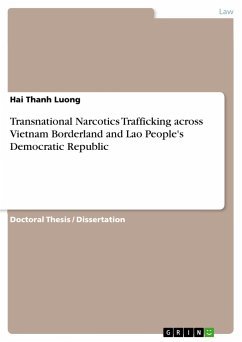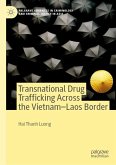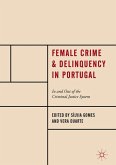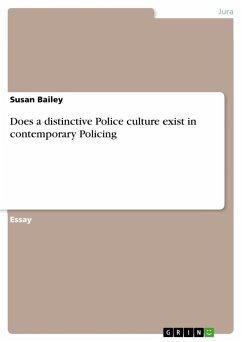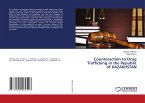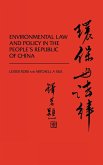Doctoral Thesis / Dissertation from the year 2017 in the subject Law - Criminal process, Criminology, Law Enforcement, grade: A, , language: English, abstract: Close proximity to the major production zones, porous borderlands, mountainous frontiers and long coastlines offer advantageous conditions for trafficking narcotics. The illicit drug situation has become much more complex in Vietnam with the growth in amphetamine-type stimulants production and trade. Even so, empirical research and analysis of the organization and operation of transnational narcotics trafficking (TransNT) remains limited. The purpose of this thesis is to present the first detailed inquiry into the nature of TransNT across the border between Lao People's Democratic Republic (PDR) and Vietnam using an exploratory approach which draws upon qualitative and quantitative methods. In particular, the thesis presents findings from case studies of cross-border trafficking between Vietnam and Lao PDR in the period of2003-2013 combined with interview and survey data from criminal investigation police and drug-related crimes officers (CIPDRC) from six border provinces who are directly and indirectly involved in investigating these cases.The findings of this study indicate that drug markets in Vietnam are not controlled by monopolistic, hierarchical organizations or 'cartels'. The structures of TransNT entities operating across the Lao-Vietnam border are small, based on family ties and fellow-countrymen relations, are fluid and loosely organized. They are very adaptable and sophisticated with diverse modus operandi and multiple divisions of labour. This presents particular challenges to law enforcement agencies (LAEs).This thesis questions to capacity of Vietnam's police to enforce the government's zero-tolerance anti-narcotics policy. The study highlights practical problems and specific barriers in combating TransNT. LEAs in Vietnam and Lao PDR operate without effective mechanisms to cooperateand share information. It is also the case that traffickers often have more sophisticated equipment at their disposal to help them avoid arrest. Police forces work within national structures and yet are faced with the task of combatting transnational crime. This reality affects law enforcement capacity at a national as well as regional level, but Association of the Southeast Asian Nations member states have yet to establish effective structures for dealing with this non-traditional security challenge. Based on these findings, therefore, the thesis proposes recommendations to enhancing the effectiveness of LEAs to combat TransNT between Vietnam and Lao PDR.
Hinweis: Dieser Artikel kann nur an eine deutsche Lieferadresse ausgeliefert werden.
Hinweis: Dieser Artikel kann nur an eine deutsche Lieferadresse ausgeliefert werden.

